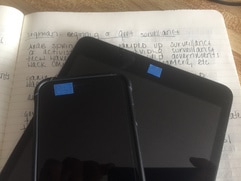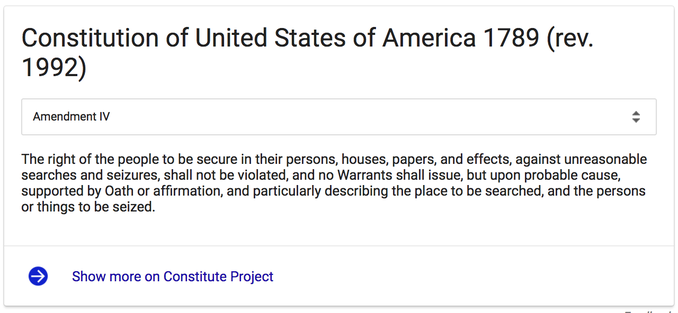 I’m going to pick up on a theme that was tucked into the end of chapter 4 in Audience Evolution (Napoli), brushed over in the Kipper reading regarding law enforcement and was the dominant concept of the Soghoian Ted Talk. But first, excuse me while I put masking tape over the cameras on all of my digital devices. If we think about a more simple time — when people used cash to buy fares and goods, when wrote letters rather than making phone calls and when people could move undetected — there was a certain anonymity to the world. Privacy scholars argue, according to Napoli, that people should have the right to read content untracked. There was no digital fingerprint. Though it’s clear from the Napoli reading that digital content distributors can’t quite nail down that tracking thing (for political and organizational reasons), it’s still possible to run down almost every minute of every day for any connected human. The host of NPR’s podcast Note To Self, Manoush Zomorodi, recently posted a new project called “The Privacy Paradox.” The intent of the podcast is to help NPR listeners regain some control over their digital data. The team at NPR outlines the metadata that is captured by all of your digital devices: “Where you went, who you spoke to, what you read, what you looked at … Metadata is surveillance data. It’s incredibly personal.” Every time we sign a new EULA - end-user license agreement, we surrender our data to app developers. Apple, Google, Microsoft (top operating systems, ) have the ultimate control over our data. For most of us, and per the example of tracking audiences as described by Napoli, there’s simply too much data. We create hundreds of thousands of data points each day in an exponentially increasing sea of data. We can’t agree, as content distributors and advertisers can’t agree, on what’s important. But, as noted by Soghoian, notable events can change that. His example was the Arab Spring. It’s possible that the American political climate will create new reasons for law enforcement to seek specific data. After the San Bernadino shooting, Apple would not play ball with government officials until they issued a court order. In their own way, tech giants can protect our constitution by blocking unreasonable search and seizure until the matter has been seen by a judge. Google knows what’s up: However, as Soghoian described, network or cloud data can be access directly with keys to the user’s device. With keys to a device, anyone can monitor digital activity. Today, we suspect Muslims. Today, we refuse Syrian refugees. Tomorrow, we use digital footprints to deny, persecute and segregate.
It makes me want to go off the grid, like this guy (but even he has a satellite dish): https://www.youtube.com/watch?v=7YNPbY6deQ0 Comments are closed.
|

